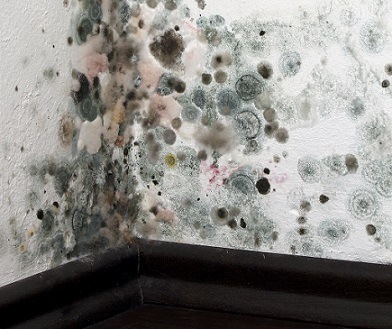Mold


Mold is a word no homeowner ever wants to hear. While we all know that mold is dangerous, many people have no idea what mold actually is or why it is dangerous.
Mold is an extremely small, dangerous element that belongs to the family of fungi. It can thrive on almost any surface especially cellulose-based objects. Mold reproduces very quickly, and it can take hold in your home in no time. Once mold takes over, your health and your wallet can be impacted. The sooner you identify and remediate, the lesser the impact.
Molds are present almost everywhere. Though they may be harmful at times, molds are a big part of the ecological balance in the environment, as they play a major role in breaking down organic substances. In fact, molds are the original recyclers. It is only when molds get into our homes that issues arise. Though there are thousands of different mold types, certain kinds are dangerous for humans. Mold spores easily become airborne and once inhaled, they can have major impacts on our health. Mycotoxins are toxic substances which are produced by fungi. These toxins are of great interest to humans because they can cause sickness or even death in people, but they can also be put to a variety of uses. Some Penicillium molds, for example, produce mycotoxins which are harmful to bacteria. It is these mycotoxins which present the greatest danger to humans in an indoor environment.
Molds require moisture to grow. There are many different types of moisture sources in our homes, and all of them can produce mold if they persist. From floods to roof leaks, moisture can come from almost anywhere. This accompanied with heat and a food source, such as drywall, create the perfect environment for spores to grow in as little as 72 hours.
If you suspect or see mold growth in your home, give us a call and we can assist you in navigating the proper remediation for your situation. It is important to identify the source of the water intrusion or moisture. Once this is located a plan can be made to remove any impacted building materials. In many cases soft goods or textiles may need special handling or even need to be disposed of. Every situation is unique and we are here to help.







